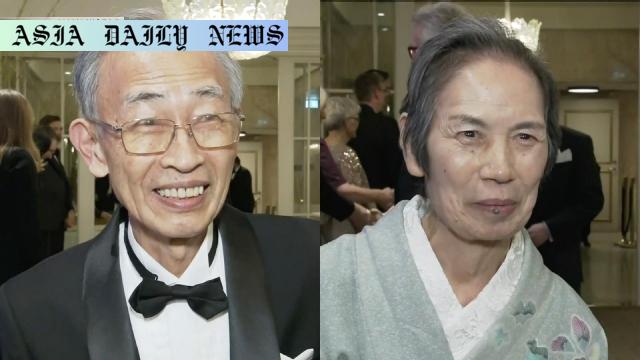Nuclear Weapons Ban – Japanese atomic bomb survivors to attend UN treaty meeting to advocate for nuclear disarmament.

Nihon Hidankyo’s Commitment to Global Nuclear Disarmament
The Japanese Confederation of A-and H-Bomb Sufferers Organizations, known as Nihon Hidankyo, is furthering its mission for a nuclear-free world by taking part in the third Meeting of States Parties to the Treaty on the Prohibition of Nuclear Weapons. This pivotal conference will convene at the United Nations headquarters in New York in March and will serve as a platform for nations and advocacy groups to discuss progress on eliminating nuclear weapons globally.
The Hibakusha’s Journey and Advocacy
At the forefront of this mission are Hamasumi Jiro and Wada Masako, two assistant secretaries general of Nihon Hidankyo and survivors of the atomic bombings of Hiroshima and Nagasaki in 1945. Hamasumi, who was in his mother’s womb during the Hiroshima bombing, and Wada, who experienced the Nagasaki explosion as a one-year-old, carry powerful firsthand accounts of the catastrophic aftermath of nuclear weapons. These vivid testimonies underscore the devastating human cost and the urgent need for disarmament.
A Nobel Laureate’s Responsibility
Nihon Hidankyo’s Nobel Peace Prize win in 2022 serves as both an acknowledgment of its unwavering efforts and a call to continue working for a world free of nuclear weapons. While this is the organization’s first engagement in an international meeting following their Nobel win, it represents a significant step forward in reinforcing their message of peace. Through Hamasumi and Wada, Nihon Hidankyo aims to connect with global delegates, sharing their personal stories to advocate for the total abolition of nuclear arms.
The Treaty on the Prohibition of Nuclear Weapons
The Treaty on the Prohibition of Nuclear Weapons, which came into force in January 2021, is a landmark agreement aimed at eliminating nuclear weapons. It bans the development, possession, use, and transfer of nuclear arms. While 73 countries and territories have ratified the treaty, its effectiveness is hindered by the abstention of nuclear-armed nations, which refuse to participate. Japan, despite being the only country to have suffered nuclear bombings, also has not ratified the treaty as it remains under the nuclear umbrella of the United States.
Advocating for Japanese Engagement
As part of their advocacy, Nihon Hidankyo is urging the Japanese government to participate in the March meeting as an observer. Such a move could signal Japan’s commitment to nuclear disarmament and underline the moral imperative of working toward a future without nuclear weapons. Japan’s unique position as a nation that has endured nuclear devastation gives it a critical responsibility in these discussions.
The Global Perspective on Nuclear Disarmament
Nuclear disarmament is a complex issue that requires both political will and public support. The involvement of hibakusha, who can share the long-term impacts of nuclear weapons on human lives, adds a deeply personal and ethical dimension to these discussions. While global powers with nuclear capabilities remain resistant to the treaty, grassroots movements and advocacy groups like Nihon Hidankyo continue to push for a shift in global norms regarding nuclear weapons.
The Way Forward
The March meeting represents both a challenge and an opportunity. It is a chance to reaffirm the commitment of those who have ratified the treaty and to try and influence others to join the cause. Through persistent efforts and the courage of hibakusha sharing their firsthand experiences, the hope for a nuclear-free world is kept alive. Although the journey is arduous, the involvement of organizations like Nihon Hidankyo ensures that the voices of survivors remain an essential part of the global dialogue on nuclear disarmament.
Commentary
The Importance of Hibakusha Voices
Hamasumi Jiro and Wada Masako’s involvement in the upcoming UN meeting highlights the critical role that hibakusha play in the global fight for nuclear disarmament. Their firsthand experiences serve as poignant reminders of the devastating human cost of nuclear weapons. These stories are not merely historical accounts but urgent calls to action for a future without such devastation.
A Moral Obligation for Japan
Japan’s unique history as the only nation to have suffered atomic bombings gives it a moral obligation to lead in the global disarmament movement. Yet, its current position under the US nuclear umbrella complicates its stance. Nihon Hidankyo’s call for Japan to join the meeting as an observer is a step in the right direction, offering a chance for Japan to reaffirm its commitment to peace and disarmament.
The Path Ahead
While the resistance of nuclear-armed nations to the Treaty on the Prohibition of Nuclear Weapons remains a significant obstacle, grassroots movements and advocacy organizations provide a ray of hope. By amplifying the voices of survivors and engaging with international stakeholders, there is potential for gradual progress. Nihon Hidankyo’s efforts exemplify the relentless pursuit of a noble goal: a world free of nuclear arms.


